We have visited Zambia in 2018 and 2019. We have been helping The Lions School for the Blind in Ndola which educates 150 pupils. Previously they only had enough Braille writing frames for one between two pupils, so they worked in pairs. We have sent sixty new writing frames to them, and one teacher told Steph on her second visit, that it is far easier to teach the pupils now. On the second visit we were able to repair two Braille embossers and establish a link with Technicians in England via Team Viewer to provide future help. We were able to install the free copy of NVDA to give up to date access through speech to the internet.
Another group of blind adult villagers have formed the Kongonga Economic Development Association of the Disabled (KEDAD). It is common for blind people to beg on the streets in Zambia, but they have bucked this trend, by making craft items, and they asked our help in marketing them. We bought all they had made, and have sold them in England. We found two shops who are able to sell their products and send back the money.
Three years ago we had sent out Megavoice audio Bibles in the Bemba language, which are Solar powered. They were delighted with these, and said our visit was like Jesus visiting them. We broke bread, and prayed together.
Foundations in Farming: The headmaster at the school, begged Steph for food, and said how much they struggled. The whole aim of Vision Through Sound is to enable people to do it for themselves. Foundations in Farming enrich the soil through compost and water retention, and can double the crop of Maize from one plot of land. So Esther and Anton, good friends who we have worked with for some years, have now been trained by Foundations in farming to carry out this kind of farming, and have started training both the school and the people at the KEDAD project.
Keddad have also purchased two hundred one day old chicks, reared them for eight weeks and then sold them to the local hospital for their food. They have now repeated this three times so far which is giving them a regular income and making them more independent not to mention putting food on their plates.
The First Newsletter about the Zambia Project can be downloaded here.
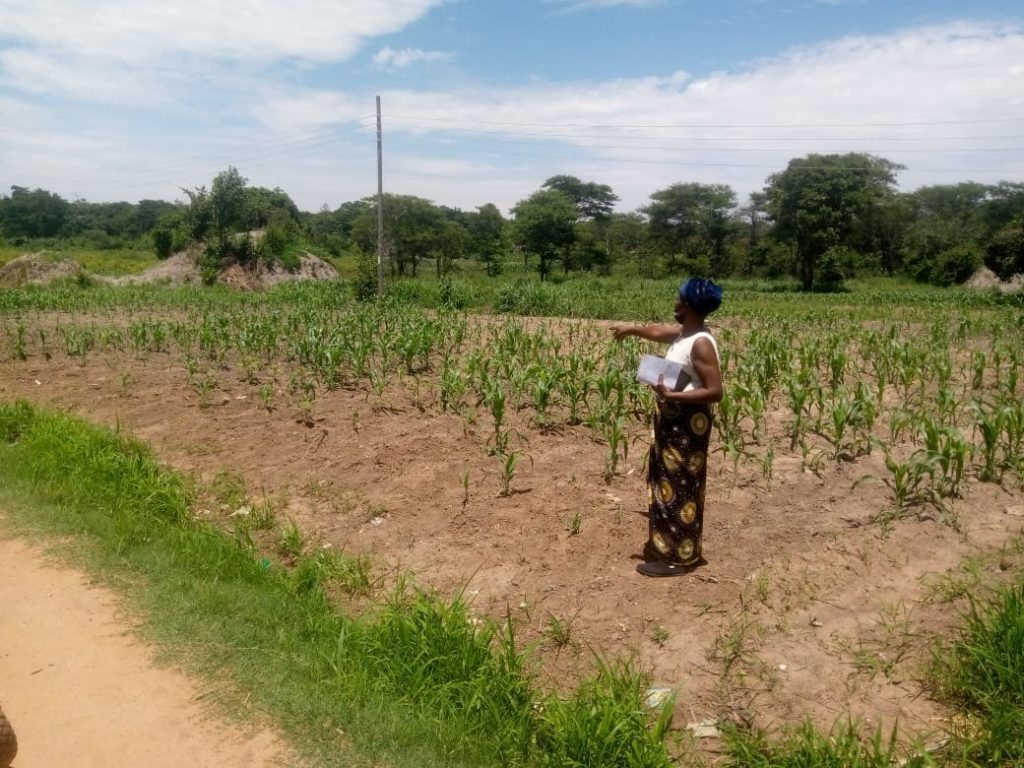
Esther stands in the first land in plan A 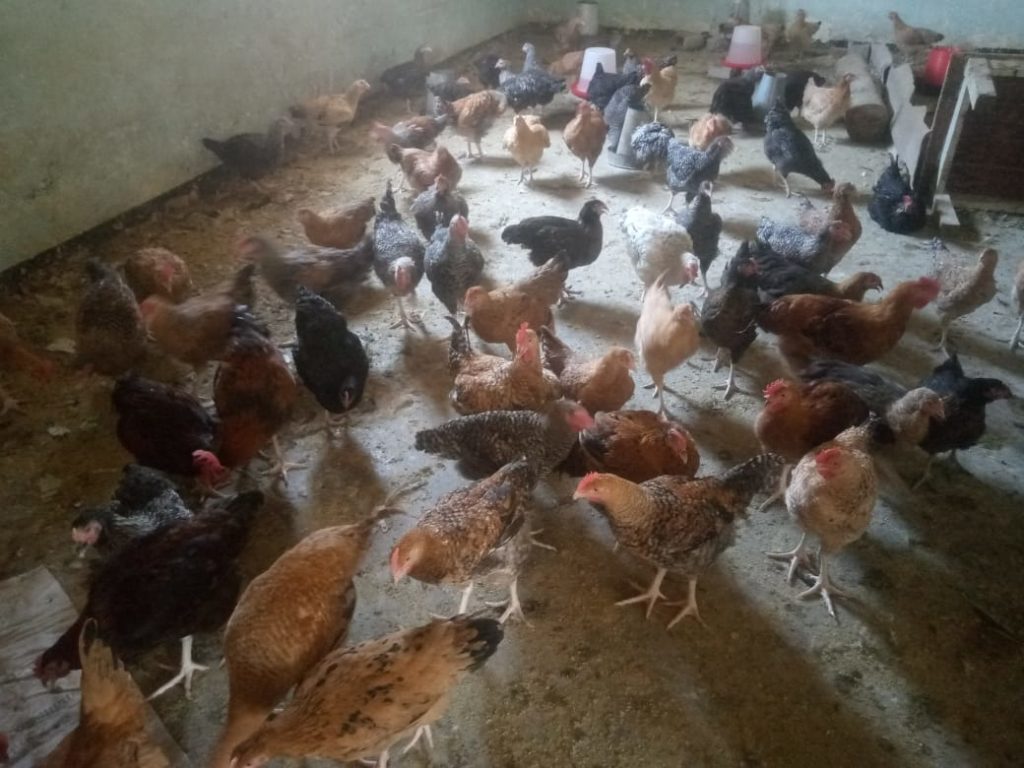
The chickens are now on the point of laying eggs 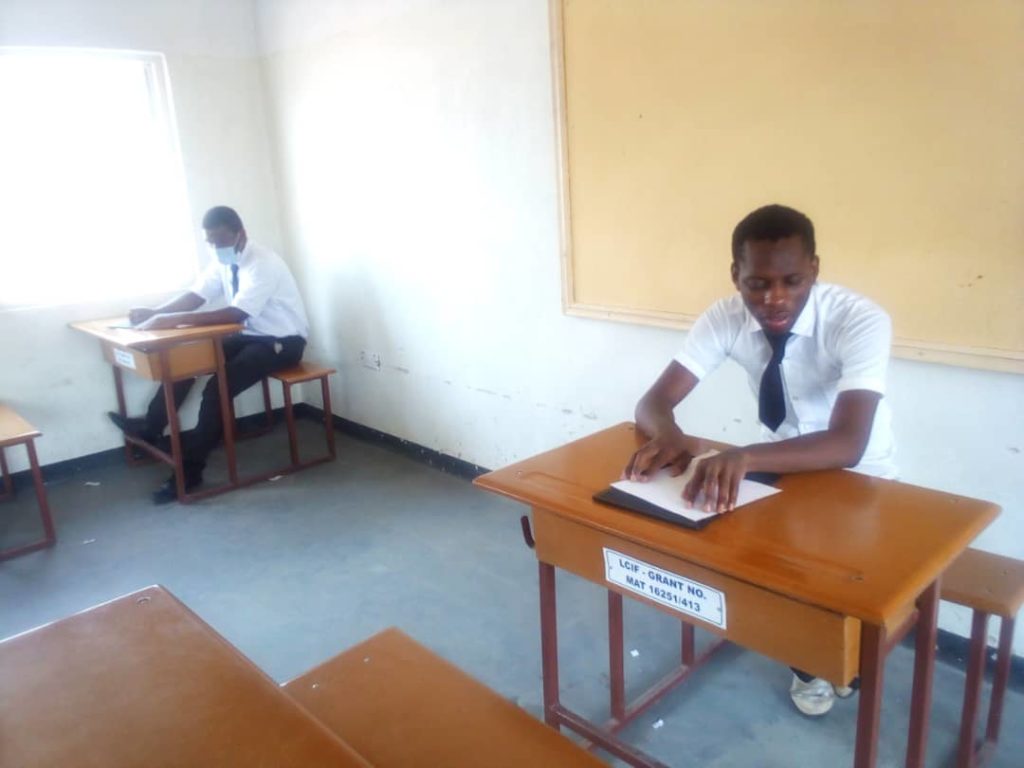
Vision Through Sound has been helping The Lions School for the Blind in Ndola which educates 150 pupils. 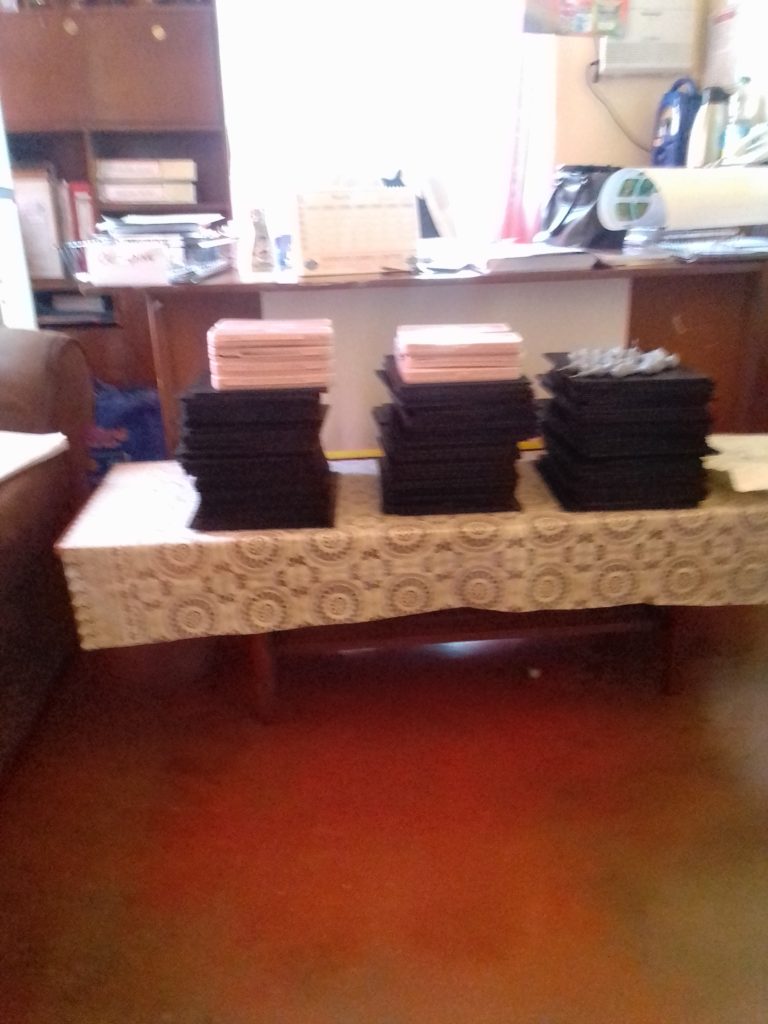
Braille writing frames all arrived safely from the UK 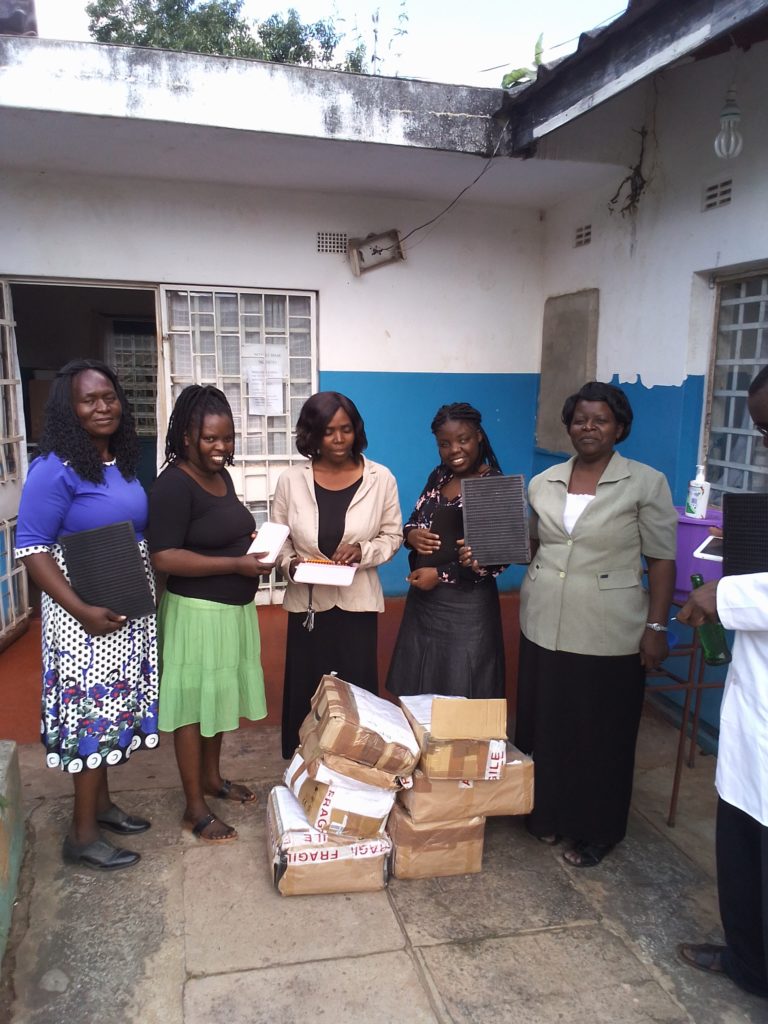
Teachers and students of Ndola Lions School for the Visually Impaired in Ndola, Zambia, unpacking the six boxes of Braille equipment sent from the UK 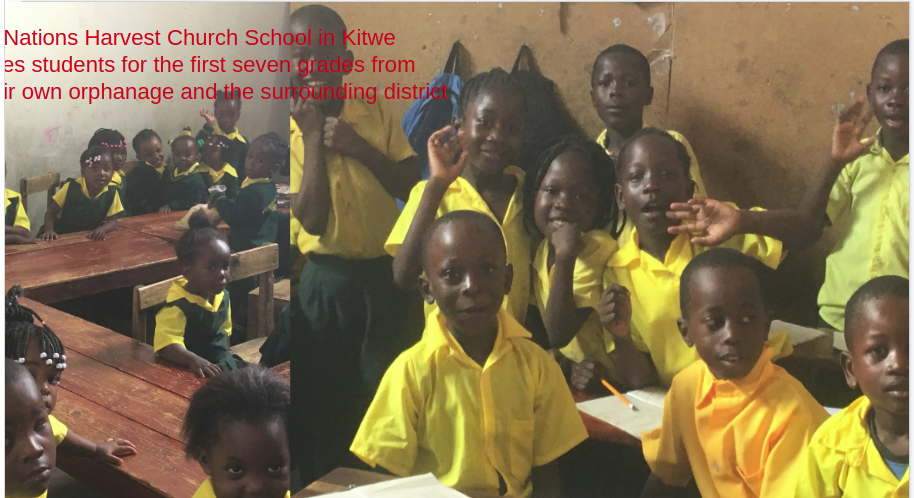
The All Nations Harvest Church in Kitwe takes students for the first seven grades from both their own orphanage at the church and the surrounding district. The orphanage runs entirely on donations and are always struggling to manage 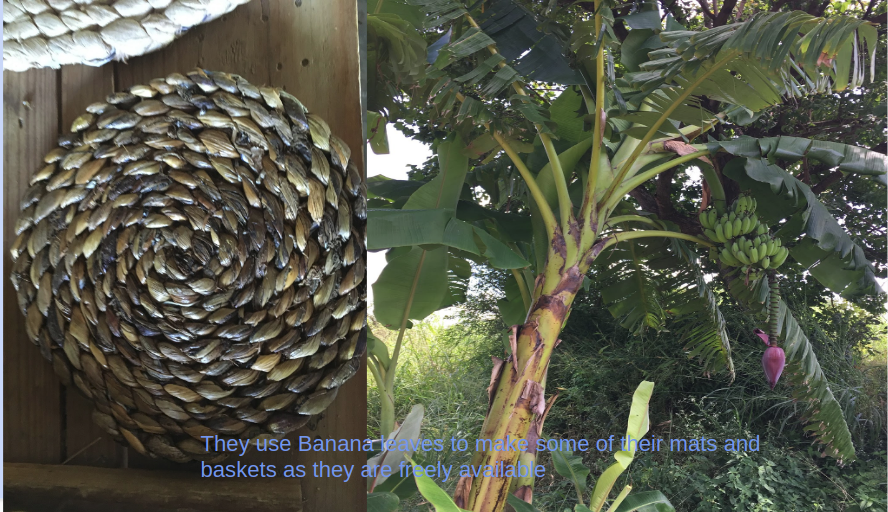
This is a mat made from banana leaves. The surrounding banana trees provide the members with the leaves 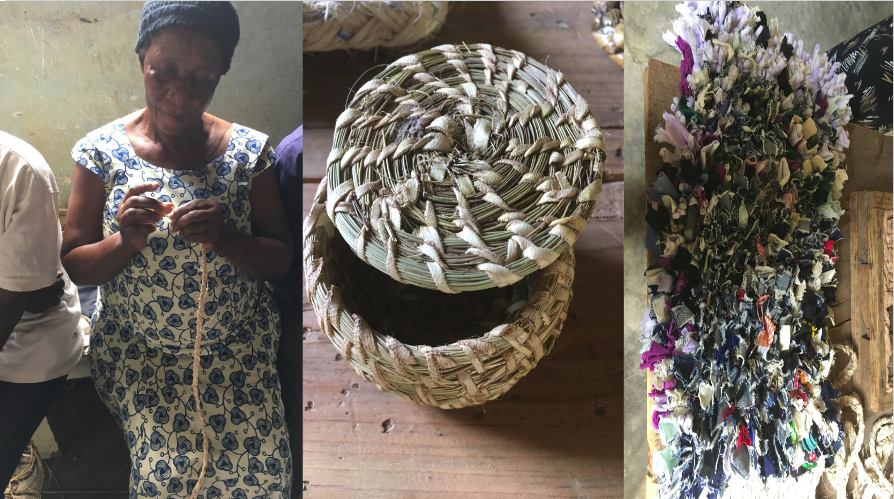
At Kedad they use banana leaves or sisal rope to make baskets and mats. The also make colourful rag rugs 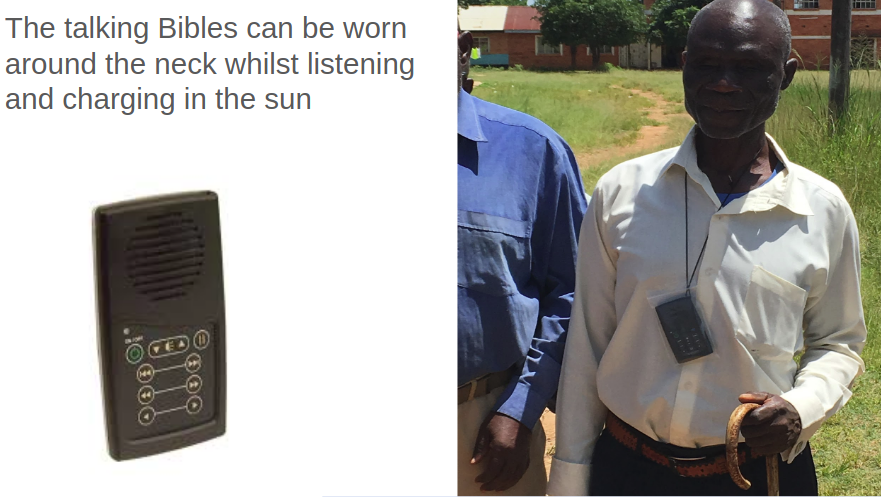
The talking bibles can be worn around the neck. They then charge in the sunlight whilst being worn 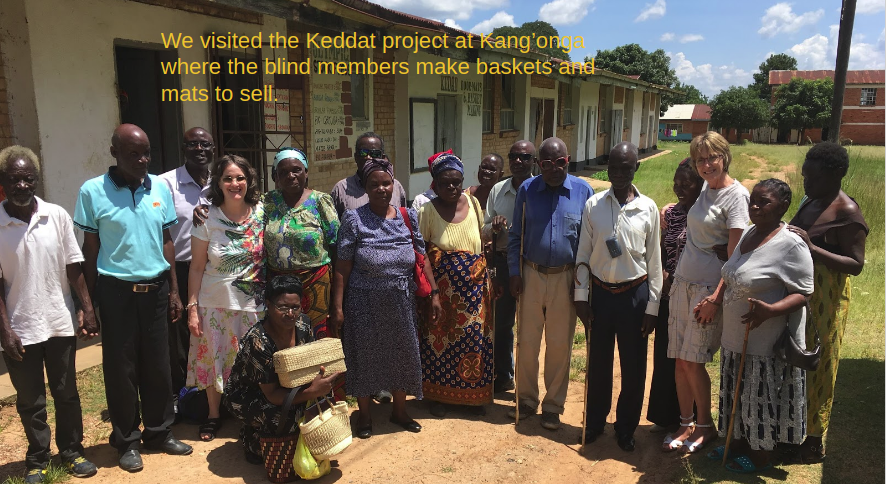
We also visited the Kedad project at Kang’onga where the members make baskets and mats to sell. The also like to knit school jumpers to sell too. 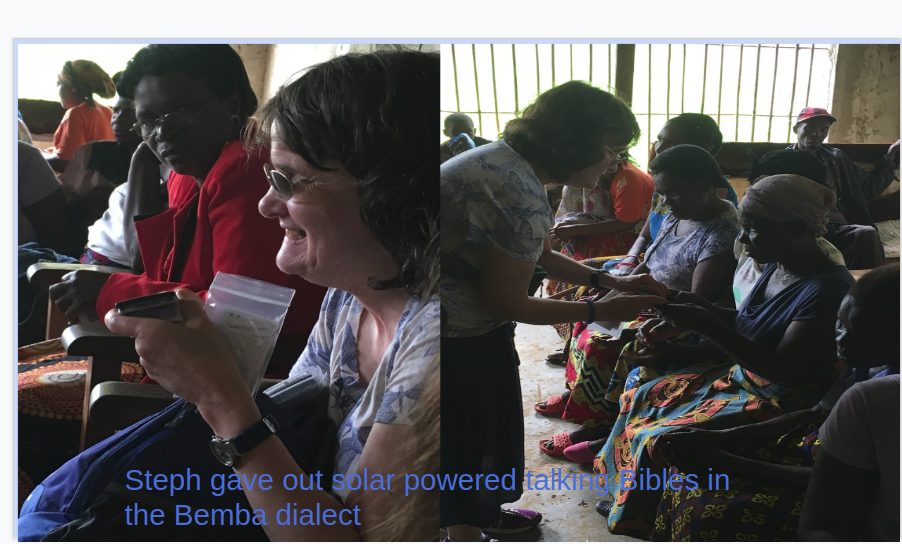
Whilst at Fisenge, Steph also gave out the solar powered talking Bibles 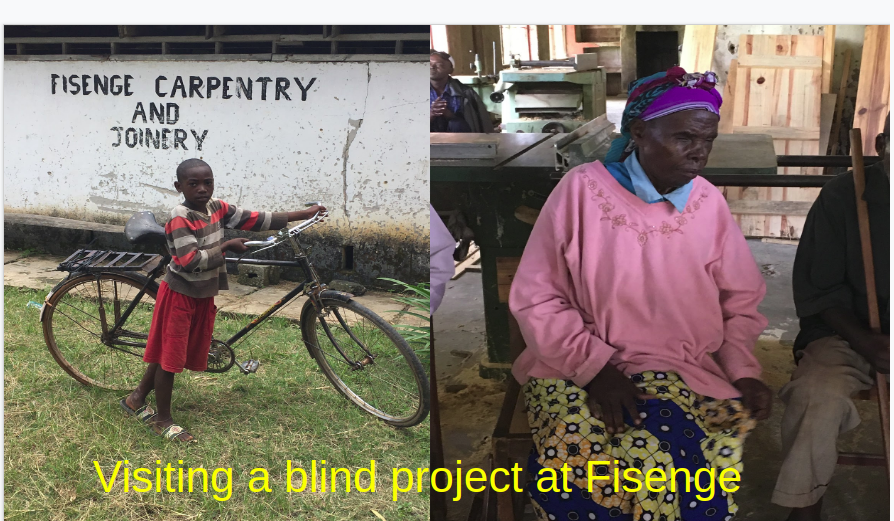
We visited a project at Fisenge where the sighted members earn a meagre living through carpentry and farming to support the blind members 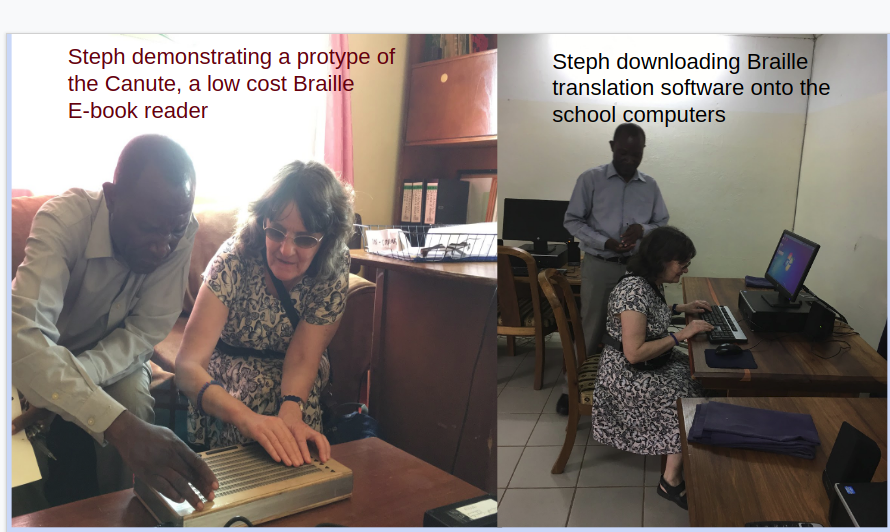
Left hand picture: Steph showing the prototype of the Canute multi line Braille reader to the headmaster of Ndola School for the Blind. Right hand picture: Steph downloading Braille translation software onto the school’s computers. 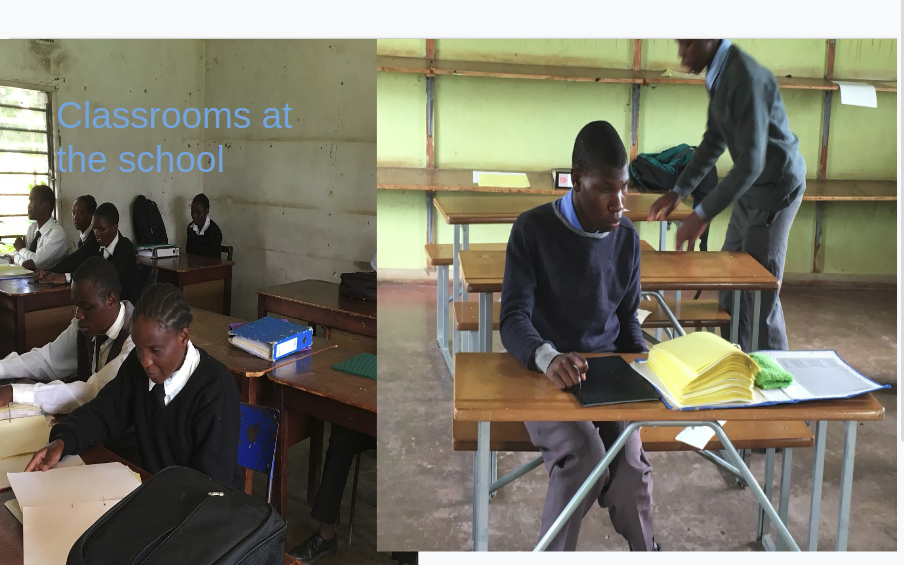
Pupils studying in the very basic classrooms at Ndola School for the Blind 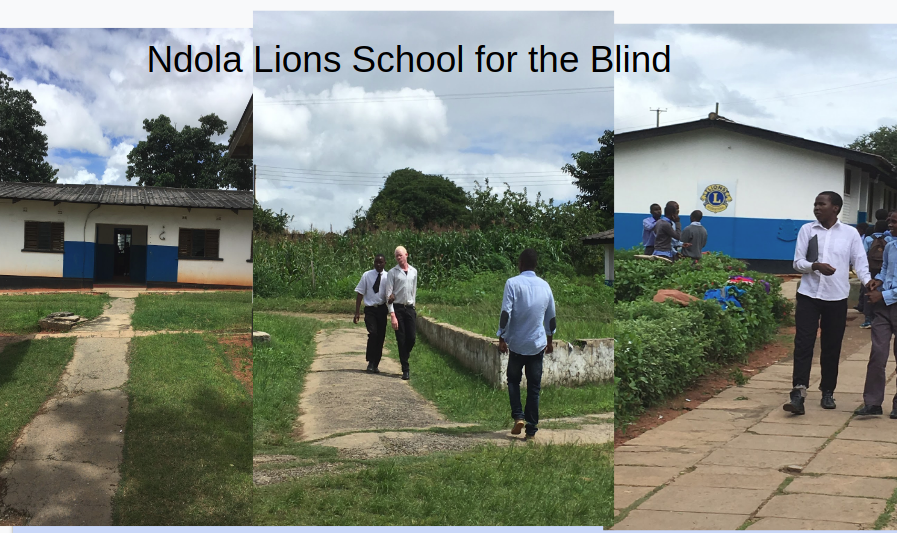
Ndola Lions School for the Blind. The pupils that have limited vision lead the blind pupils around the school grounds 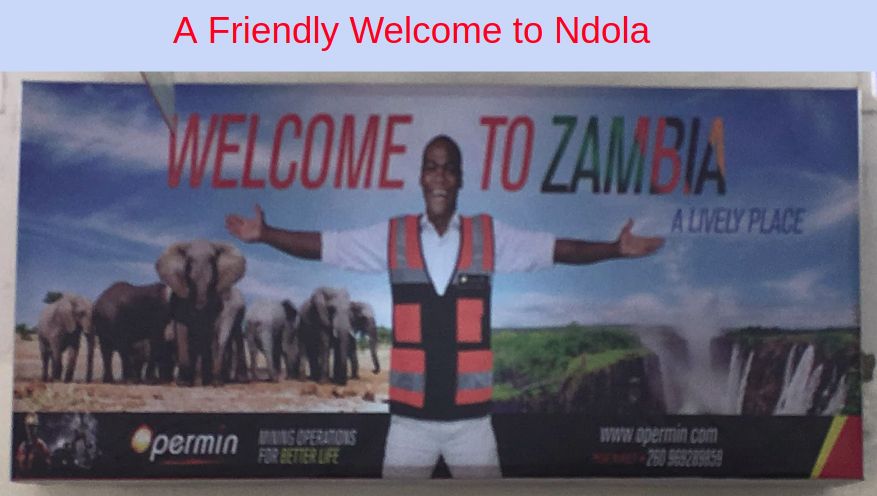
Welcome to Zambia 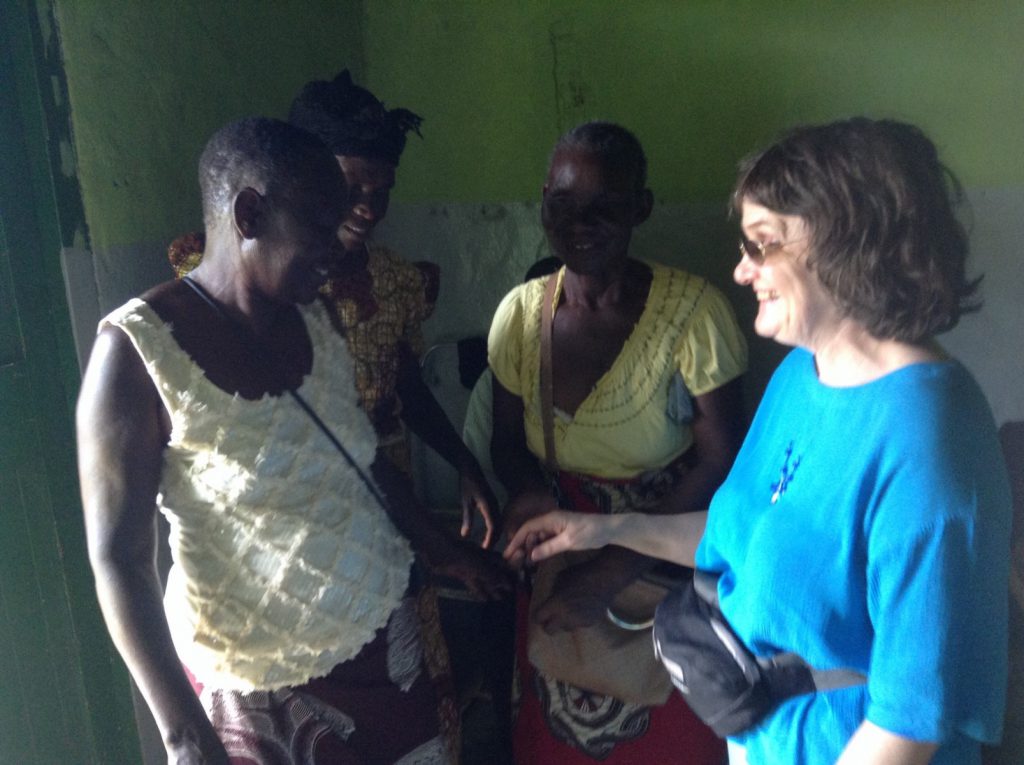
Steph talking to three blind ladies at Kedad project 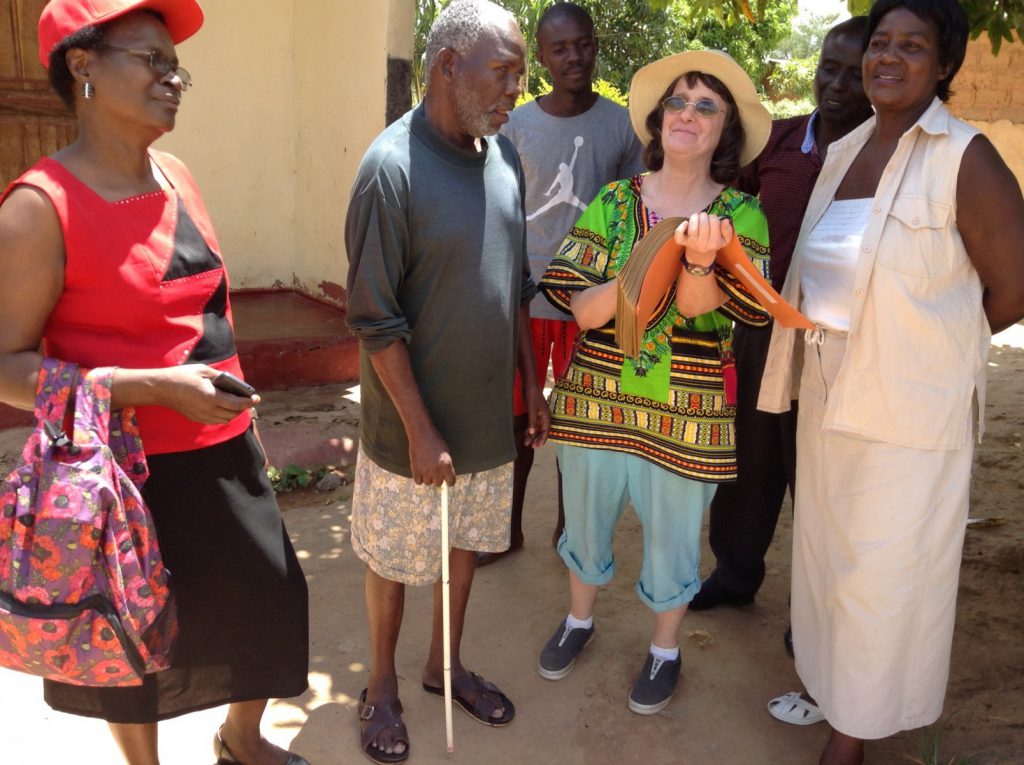
Steph reading from a Braille book at Kedad project 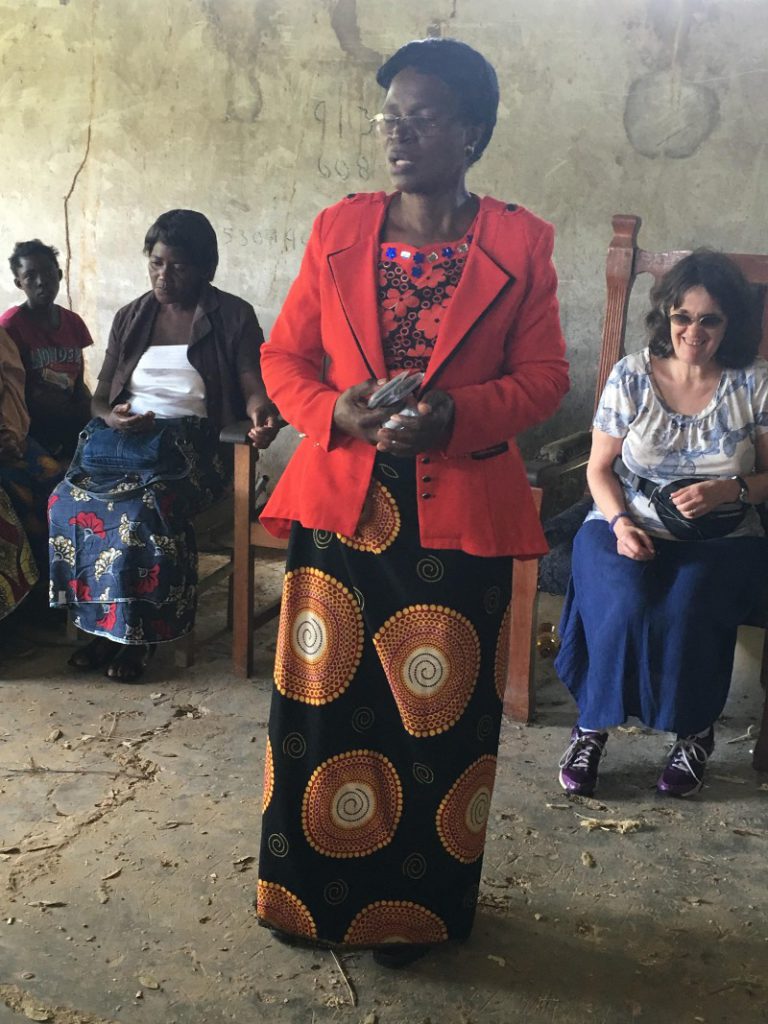
Esther Phiri, who is helping with support and training in farming at both the Ndola School for the Blind and also at the KEDAD project. 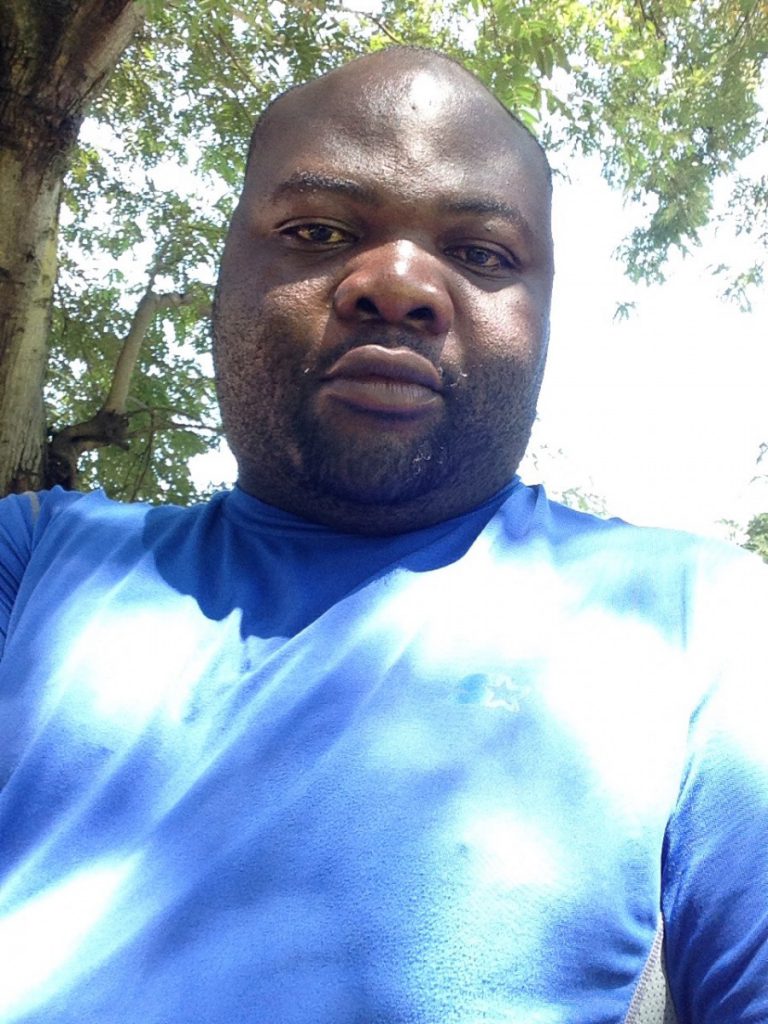
Anton who drives Steph everywhere whilst in Zambia. He is also trained to teach the school and the KEDAD project on the best methods of farming 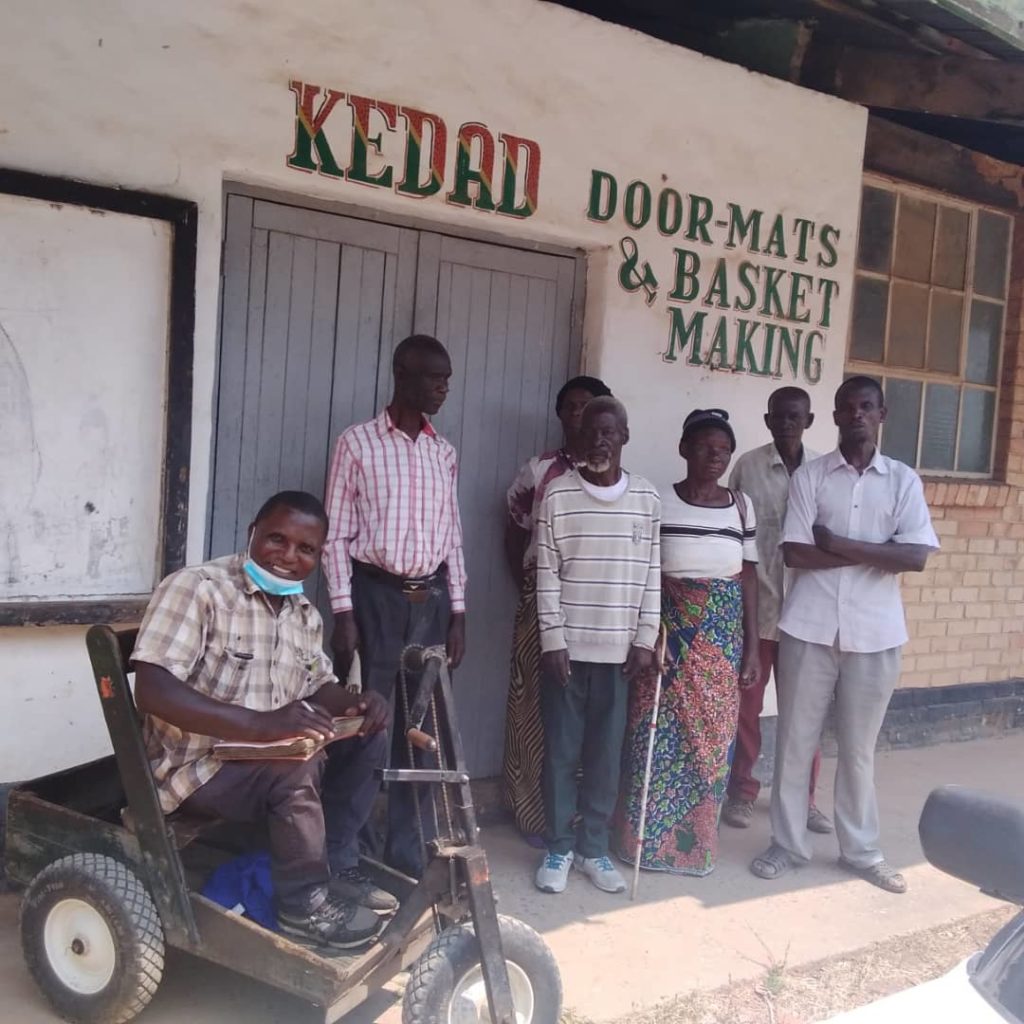
The Kongonga Economic Development Associa5on of the Disabled (KEDAD) was formed by a group of blind adults from the village.